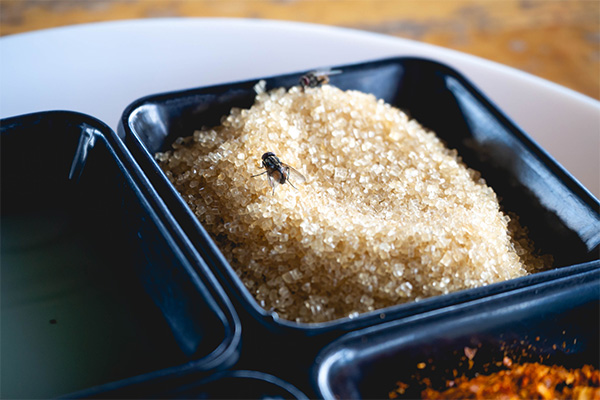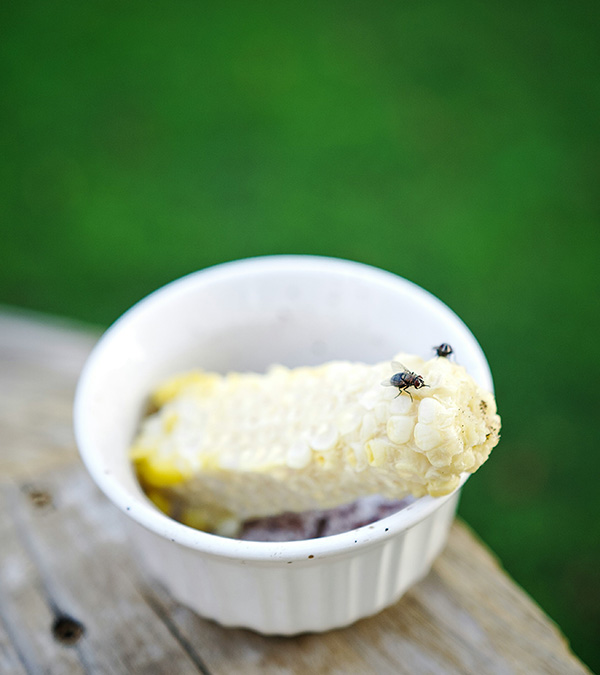Are buzzing flies turning your peaceful indoor haven and outdoor gatherings into a buzzing battlefield? You're not alone! Whether you're enjoying a cozy evening indoors or planning a backyard barbecue, flies seem to find their way into every occasion
But fear not, this blog post is your ultimate guide to waging war on flies and winning back your tranquility. We've got tips, tricks, and some surprising strategies up our sleeves that will have you saying goodbye to those unwanted winged guests in no time.
What Attracts Flies?
Flies are more than just a nuisance; they're nature's little daredevils, constantly seeking out adventure (and leftovers) wherever they go. But what causes flies to be the buzzing stars of the insect world?
Food Residue: One of the primary reasons flies invade our homes is the enticing aroma of food. Remnants of crumbs, spills, and open containers provide an enticing banquet for flies. They're attracted to the scent and will tirelessly search for even the tiniest morsels.
Moisture: Flies are naturally drawn to moisture sources. Leaky faucets, standing water, and damp sponges are like magnets for them. Kitchens and bathrooms, with their abundance of moisture, are particularly attractive.
Garbage: Rotting organic matter, especially in trash cans, acts as a breeding ground for flies and leads to fly infestation. The odors emanating from trash bins are a signal for adult flies to gather and lay their eggs.
Decaying Organic Matter: Flies flourish in outdoor settings rich in decaying organic matter. This includes compost heaps, animal droppings, and fallen fruit. These areas serve not only as food sources but also as ideal locations for laying eggs.
Manure: Flies are notorious for congregating around animal manure, where they breed and feed. Livestock farms and barnyards often become hotspots for fly infestations.
Floral Attraction: Some flies, like fruit flies and pollinators, are drawn to flowers and the nectar they provide. While these flies play essential roles in pollination, they can still be a presence in outdoor spaces.

How to eliminate house flies
Maintain Cleanliness
Flies are relentless scavengers, always on the lookout for a meal. To deter them, maintain a clean and orderly home. Routinely sweep and mop floors, wipe down countertops, and promptly clean up any food crumbs or spills. Give extra attention to areas around pet food dishes and garbage cans.
Secure Food Storage
Proper food storage is essential to prevent flies from being lured into your home. Use airtight containers for pantry staples, cereals, and snacks. Store fruits and vegetables in the refrigerator or sealed containers in the kitchen. Ensure outdoor garbage bins have tightly sealed lids to prevent odors from escaping.
Use Fly Screens
Installing fly screens on doors and windows is a proactive measure to block flies from entering your living spaces while allowing fresh air in. Ensure screens are inspected for holes or damage and promptly repaired to preserve their effectiveness.
Natural Fly Repellents
Flies have a strong sense of smell, and there are natural scents that they find unpleasant. Placing aromatic herbs like basil, mint, or eucalyptus near entry points or areas where flies congregate can help deter flies from entering and repel flies naturally. Additionally, it imparts a delightful fragrance to your home.
In addition, you can try using essential oils like lavender, rosemary, cloves, and lemongrass near the problem areas. Essential oils are highly concentrated and can be displeasing to flies.
Homemade Fly Traps
Vinegar traps are a simple yet effective way to capture flies. Fill a shallow bowl with apple cider vinegar and introduce a few drops of dish soap. The flies are attracted to the vinegar but get trapped in the soapy water's surface tension. Empty and refresh the trap as needed.
Fly Paper Strips
Hanging fly paper strips near windows or light sources attracts flies, which then stick to the adhesive surface. It's a passive and chemical-free method to reduce fly populations indoors. Replace the strips when they become covered with flies.
Electric Fly Zappers
Electric fly zappers emit UV light, which attracts flies, and when they come into contact with the device, they are electrocuted. Place these zappers in fly-prone areas but be cautious about using them around food preparation areas.
Ultraviolet (UV) Traps
UV light traps are designed to mimic natural light sources and attract flies into a trap where they become trapped or are unable to escape. While these devices are more frequently utilized in commercial settings, they can also prove effective indoors.
Clean Drains
Flies can reproduce in damp, organic matter present in drain pipes. To mitigate this, routinely clean and sanitize your drains. Pour a combination of vinegar and baking soda down the drain, followed by boiling water, to eliminate any organic buildup that might attract flies.

How to get rid of flies outdoors
Clean Up Outdoor Areas
Start your fly-fighting mission by conducting a thorough clean-up of your outdoor spaces. Remove any rotting fruit that may have fallen from trees and pick up pet waste promptly. If you have a compost pile, make sure it's well-managed and turned regularly to prevent flies from breeding there.
Secure Trash and Food
Flies are often attracted to outdoor trash cans, where they can find both food scraps and a place to lay eggs. Opt for tightly sealed trash cans with lids that are resistant to flies. Avoid leaving food uncovered during picnics or outdoor gatherings.
Maintain Lawns and Landscaping
Keep your outdoor space well-groomed by mowing the lawn regularly and removing tall grass or overgrown weeds. Flies tend to hide in dense vegetation, so keeping your landscape tidy reduces their harborage areas.
Use Fly Traps
Outdoor fly traps and baits are effective tools for controlling fly populations. Hang fly traps in strategic locations, away from your seating or dining areas. These traps use attractants to lure flies in, where they become trapped.
Install Fans
Consider installing outdoor fans if you have a patio or outdoor seating area. The constant airflow created by fans keeps you cool and makes it challenging for flies to land and stay in the vicinity.
Citronella Candles and Plants
Citronella candles and torches emit scents that repel flies and other flying insects. They can serve as a valuable addition to the ambiance of your outdoor space. Additionally, planting fly-repelling plants like citronella, marigolds, or lavender in your garden can naturally deter house flies.
Keep Water Sources Clean
Flies are attracted to water, especially in hot weather. Make certain that outdoor water features, such as birdbaths, fountains, and ponds, are kept clean and undergo regular maintenance to deter them from becoming breeding grounds for flies.
Use Fly Screens and Netting
For outdoor dining or relaxation areas, consider installing fly screens or netting. These barriers establish a physical shield between you and the flies, enabling you to relish your outdoor space without any interruptions.
Reduce Outdoor Lights
Outdoor lights can attract flies at night. To minimize their attraction, replace standard light bulbs with yellow or bug-repellent bulbs, which are less appealing to insects. Consider using motion-activated lighting to reduce the need for constant illumination.
Professional Fly Control
In severe or persistent fly infestations, it's advisable to seek the expertise of professional fly control services. Professionals can evaluate the situation, identify the fly species, and implement a fly control treatment program to eliminate the problem.
